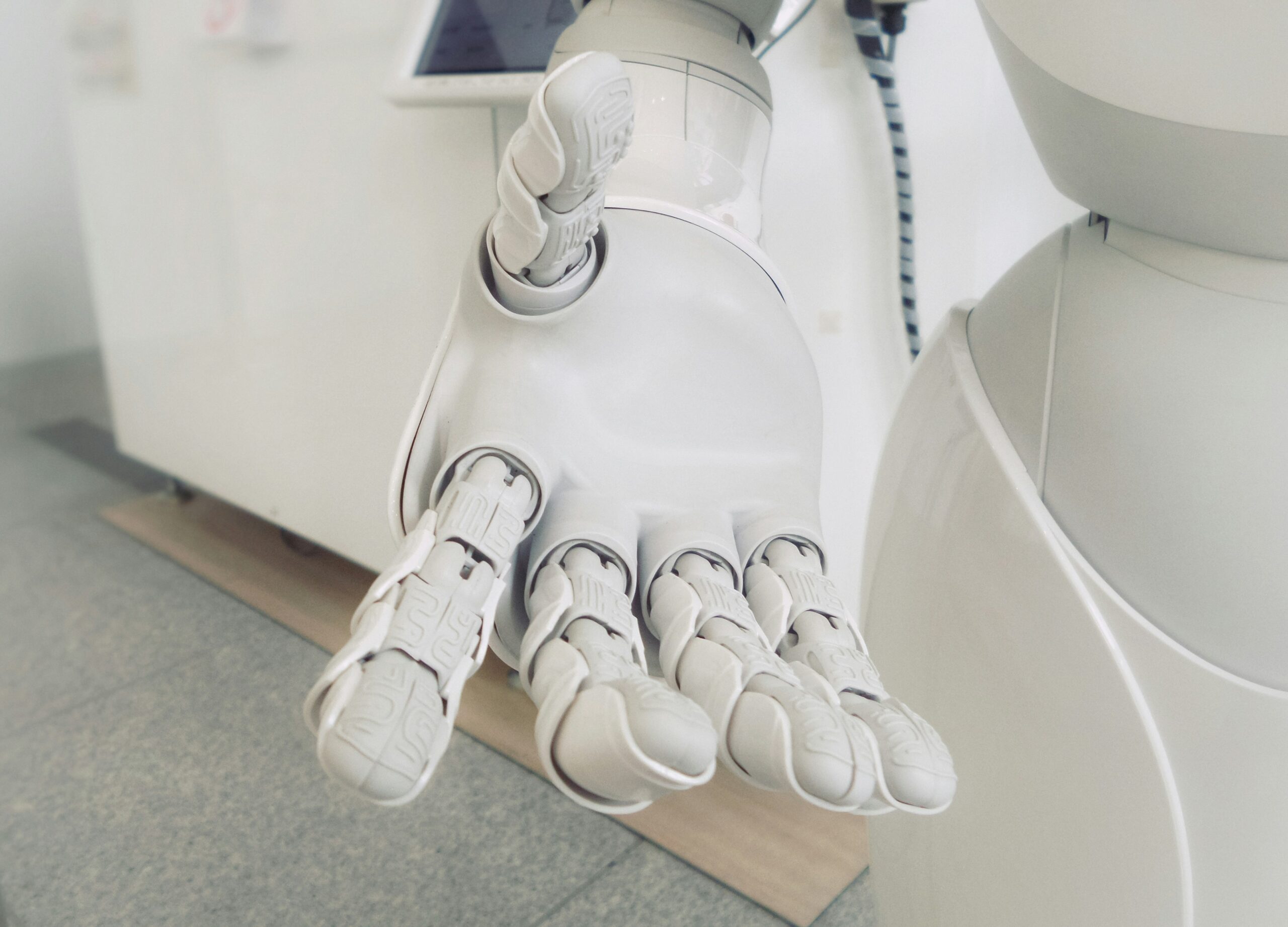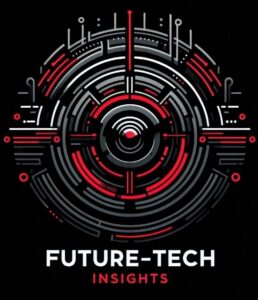Introduction to AI in Healthcare
Artificial Intelligence (AI) is not a concept confined to the realms of science fiction anymore; it has emerged as a pivotal force across various industries. One sector where AI is making significant strides is healthcare. The advancements in AI are not only reshaping medical practices but also enhancing patient care in unprecedented ways. This growing influence raises fundamental questions about how AI is transforming healthcare.
AI technologies, such as machine learning, natural language processing, and robotics, are being integrated into healthcare systems at an accelerating pace. These innovations promise to streamline processes, from diagnostics to treatment plans, and provide personalized care. The ability of AI to analyze vast amounts of data swiftly and accurately is a game-changer in fields like radiology, pathology, and precision medicine. Consequently, healthcare professionals are better equipped to make informed decisions, thereby improving patient outcomes.
One of the compelling reasons why AI is rapidly gaining traction in healthcare is its potential to address some of the most pressing challenges in the industry. The integration of AI can help tackle issues such as resource scarcity, medical errors, and the increasing demand for healthcare services. Predictive analytics powered by AI can foresee disease outbreaks and enable preemptive measures, thus minimizing risks and saving lives.
Moreover, AI-driven innovations are transforming how medical research is conducted, fast-tracking the development of new therapies and drugs. For instance, algorithms capable of sifting through reams of clinical data can identify potential treatment paths that human researchers might overlook. This accelerates the drug discovery process and brings crucial medications to market faster.
As we continue to explore how AI is transforming healthcare, it becomes evident that this technology is set to revamp the industry fundamentally. From reducing workloads for healthcare providers to offering tailored treatment options for patients, AI’s potential impact is immense and far-reaching.
“`
AI in Diagnostics and Imaging
Artificial Intelligence (AI) is significantly enhancing the field of diagnostics and imaging, offering unprecedented improvements in both accuracy and efficiency. Traditional imaging modalities, such as Magnetic Resonance Imaging (MRI) and Computed Tomography (CT) scans, have long been indispensable tools for medical professionals. However, AI is now elevating these technologies to new heights by incorporating advanced machine learning algorithms that can analyze vast amounts of imaging data far more swiftly and accurately than human clinicians.
For instance, radiologists frequently rely on AI to identify patterns and anomalies within imaging scans that may be indicative of diseases such as cancer, neurological disorders, and cardiovascular conditions. Studies have shown that AI-driven diagnostic tools can reduce the rate of false positives and false negatives, thus improving diagnostic accuracy. A recent study published in “Nature” reported that an AI model could match or even surpass the diagnostic performance of human experts in breast cancer detection. Another example is Google’s DeepMind, which has developed algorithms capable of interpreting eye scans to predict the onset of conditions like diabetic retinopathy and age-related macular degeneration with remarkable precision.
Moreover, AI-powered imaging technologies are increasingly being integrated into clinical workflows. Hospitals and diagnostic centers now leverage AI to pre-screen medical images, highlighting areas of concern so that radiologists can focus their expertise more effectively. This collaboration between AI and medical professionals not only accelerates the diagnostic process but also allows for early disease detection, which is crucial for successful treatment outcomes. For example, AI models designed to analyze lung CT scans can identify early signs of lung cancer much earlier than conventional methods.
In the real world, companies like IBM Watson Health and Zebra Medical Vision are at the forefront of integrating AI in imaging protocols. These platforms utilize robust databases and machine learning algorithms to assist clinicians in making more informed decisions. By continuously learning and evolving from new imaging data, AI systems stand to revolutionize diagnostic accuracy and efficacy further.
Personalized Medicine and AI
Personalized medicine represents a transformative shift in healthcare, moving away from the traditional “one-size-fits-all” approach to treatment. Central to this revolution is artificial intelligence (AI), which is significantly facilitating the development and implementation of personalized treatment plans. At its core, personalized medicine relies on a detailed understanding of an individual’s genetic profile, lifestyle, and a myriad of health data points to tailor therapies that are most effective for that specific individual.
Machine learning algorithms, a subset of AI, are particularly adept at analyzing and interpreting vast amounts of complex data, including genetic information. These algorithms can identify patterns and correlations within a patient’s genetic code that might not be apparent to human researchers. For instance, by examining genomic sequences, AI can predict an individual’s susceptibility to certain diseases, enabling proactive and preventive healthcare measures. Additionally, AI can determine the most effective drug therapy by comparing the best outcomes from vast databases of clinical data, ensuring that the chosen treatment has the highest probability of success while minimizing adverse side effects.
One illustrative example of AI in personalized medicine is its application in oncology. AI-driven tools analyze genetic mutations and the molecular profiles of tumors to recommend targeted therapies that are more effective against specific cancer types. This precision not only enhances the efficacy of the treatment but also spares patients from undergoing less effective, broad-spectrum therapies that come with significant side effects. Furthermore, AI can continuously monitor and adjust treatment plans in real-time based on patient responses, offering an adaptive treatment approach that evolves with the patient’s condition.
The integration of AI in personalized medicine is already showing promising outcomes, refining treatment strategies, and paving the way for a future where medical care is tailored precisely to the individual. This paradigm shift not only improves patient outcomes but also reduces healthcare costs by minimizing trial-and-error treatments. Through continuous advancements in AI technology, the dream of personalized medicine is becoming a tangible reality, heralding a new era in medical science.
“`html
AI in Predictive Analytics
Artificial Intelligence (AI) has emerged as a transformative force within the realm of predictive analytics, particularly in the healthcare industry. By harnessing the power of complex algorithms and vast datasets, AI-driven predictive models possess the ability to foresee potential health issues well before they escalate into severe conditions. This proactive approach enables healthcare professionals to intervene early, implementing preventive measures that can mitigate risks and enhance patient outcomes.
One significant application of AI in predictive analytics is the prediction of patient readmissions. Hospitals are increasingly utilizing AI algorithms to analyze patient data, including medical history, treatment plans, and recovery patterns. By identifying patients who are at a higher risk of readmission, healthcare providers can tailor post-discharge care plans and support mechanisms, thereby reducing the likelihood of readmission and improving overall patient care.
Another critical application is the forecasting of outbreaks of infectious diseases. AI models can process and analyze data from multiple sources such as social media, medical records, and public health reports. This capability allows for early detection of potential disease outbreaks, facilitating timely public health responses and containment strategies. For instance, during the COVID-19 pandemic, AI played a pivotal role in monitoring and predicting the spread of the virus, aiding governments and health organizations in their efforts to manage the crisis effectively.
AI is also instrumental in identifying individuals at high risk of developing chronic conditions such as diabetes and cardiovascular diseases. By integrating data from various sensors, electronic health records, and genetic information, predictive models can pinpoint risk factors and early warning signs. This enables healthcare providers to offer personalized intervention plans, lifestyle modifications, and continuous monitoring, potentially averting the onset of these chronic ailments.
In essence, AI in predictive analytics is revolutionizing the healthcare industry by enabling precision medicine and promoting a shift from reactive to preventive care. The combination of advanced data analysis and timely interventions holds the promise of mitigating health risks and enhancing the quality of life for patients worldwide.
“““html
Virtual Health Assistants and Chatbots
The integration of AI-powered virtual health assistants and chatbots represents a significant advancement in the transformation of patient interactions within the healthcare industry. These digital tools are designed to streamline various aspects of healthcare access and patient support, offering a versatile range of capabilities that significantly alleviate the administrative burdens historically managed by healthcare professionals.
Virtual assistants and chatbots are adept at scheduling appointments, managing follow-ups, and answering routine health queries, which ensures patients receive prompt and accurate information. By automating these tasks, healthcare providers can allocate more time to addressing complex patient needs, ultimately enhancing overall healthcare delivery. This technology’s efficacy in maintaining consistent communication can also aid in patient retention, reducing missed appointments and improving compliance with treatment plans.
Furthermore, virtual health assistants extend their functionality to support mental health. They provide an easily accessible platform for initial mental health evaluations, coping strategies for anxiety and depression, and continuous monitoring of a patient’s mental well-being. This utility is particularly beneficial in scenarios where immediate professional intervention may not be feasible, offering a bridge to professional care when necessary.
These AI-driven solutions also feature personalized health recommendations based on user input and historical data, fostering a more individualized approach to patient care. By utilizing natural language processing (NLP) and machine learning algorithms, these tools comprehend and respond to user inquiries with increasing accuracy, mirroring the efficacy of human interaction and maintaining patient engagement.
Ultimately, the deployment of virtual health assistants and chatbots stands out as a pivotal element in the ongoing evolution of the healthcare sector. They not only provide significant support to healthcare professionals by reducing their workload but also empower patients through enhanced accessibility and responsive care, marking a progressive step towards a more efficient and patient-centered healthcare system.
“`
Robotics and AI in Surgery
The integration of artificial intelligence (AI) and robotics in surgical procedures marks a significant milestone in the evolution of healthcare. These advanced technologies are augmenting human capabilities, offering unparalleled precision and efficiency that traditional methods often cannot achieve. Robotic surgery, powered by AI-driven systems, has revolutionized the way surgeries are performed, leading to improved patient outcomes and streamlined medical processes.
One of the most notable advancements in this domain is the development of robotic surgery systems like the da Vinci Surgical System. This technology allows surgeons to perform intricate procedures with enhanced dexterity and control. The AI components of these systems assist in task automation, real-time decision support, and improved visualization, thereby reducing the margin of human error and enhancing the overall surgical experience.
The benefits of AI-integrated robotic surgery are multifaceted. Precision is significantly improved, as these systems can execute movements with microscale accuracy, which is often difficult for human hands to achieve. This level of accuracy leads to minimally invasive procedures, which in turn result in reduced trauma to the body, lower risk of infections, and quicker recovery times. Patients can often return to their daily routines faster, and hospital stays are notably shorter, driving down healthcare costs for both institutions and patients.
Several healthcare facilities worldwide have successfully embraced AI-driven robotic surgeries. For instance, Cleveland Clinic has employed robotic systems to perform complex cardiac surgeries with high success rates. Similarly, John Hopkins Medicine has integrated AI and robotics to enhance their capabilities in neurosurgery, resulting in improved precision and better patient prognosis.
In summary, the blending of AI and robotics in surgery not only streamlines the surgical process but also elevates the standard of patient care. As these technologies continue to evolve, the scope for their application will only expand, heralding a new era of medical innovation and advancement.
Ethical Considerations and Challenges
The integration of Artificial Intelligence (AI) in healthcare presents a host of ethical considerations and challenges that need careful deliberation. One of the primary concerns is data privacy. With AI systems relying heavily on vast amounts of patient data to enhance diagnostic processes and treatment plans, ensuring the confidentiality and security of this sensitive information becomes paramount. Healthcare organizations must adhere to stringent data protection regulations, such as the General Data Protection Regulation (GDPR) in Europe and Health Insurance Portability and Accountability Act (HIPAA) in the United States, to prevent unauthorized access and data breaches.
Another significant challenge is the need for transparency in AI algorithms. For AI to gain widespread acceptance in healthcare, it is essential that both healthcare professionals and patients understand how these algorithms make decisions. A lack of comprehensibility can lead to mistrust and reluctance to adopt AI-driven solutions. Therefore, developing transparent AI systems where the decision-making process can be easily understood and explained is crucial.
Additionally, AI systems must be rigorously evaluated for potential biases. If the data used to train AI models is not representative of diverse patient populations, there is a risk of these models perpetuating existing healthcare disparities. Hence, ethical AI deployment necessitates the incorporation of diverse datasets and continuous monitoring to identify and mitigate biases, ensuring that AI solutions promote fairness and equity across all demographic groups.
Equitable access to AI-driven healthcare solutions is another pivotal issue. It is important to ensure that the benefits of AI do not favor certain groups while disadvantaging others. Policymakers and healthcare providers must work together to create an inclusive environment where AI technologies enhance healthcare delivery universally, regardless of socioeconomic status.
Regulatory measures and frameworks play a critical role in addressing these ethical considerations and challenges. Agencies worldwide are developing guidelines and policies to standardize AI usage in healthcare settings. These regulatory efforts aim to safeguard patient rights, enforce data security, promote transparency, and mitigate biases, thereby fostering trust and ensuring that AI’s integration into healthcare is conducted responsibly.
Future Prospects of AI in Healthcare
As we look ahead, the future prospects of AI in healthcare are nothing short of transformative. AI technology is poised to bring about substantial innovations, driving advancements that will fundamentally alter the landscape of global health. Key emerging trends include the continuous evolution of machine learning algorithms and natural language processing, which will enhance diagnostic accuracy and treatment personalization to unprecedented levels.
Upcoming innovations in AI are likely to include the integration of AI-powered robotics in surgical procedures, offering high precision and minimally invasive operations. Additionally, wearable health technologies imbued with AI capabilities promise to deliver real-time health monitoring and predictive analytics, enabling timely and preventive interventions. The potential of AI to streamline administrative processes, optimize resource allocation, and improve patient management systems cannot be overstated, heralding an era of efficiency and personalized care.
The impact of AI on healthcare will also extend to global health outcomes. Predictive modeling and big data analytics can help in early detection of disease outbreaks, assisting in effective response strategies. AI’s role in drug discovery and development will potentially shorten the time frame for bringing new medications to market, offering new hope for conditions that currently lack effective treatments. By analyzing vast datasets, AI can highlight patterns and insights that are beyond human capability, driving innovation and evidence-based practices.
To fully harness the potential of AI in healthcare, ongoing research and collaboration between technology companies, healthcare providers, and policymakers are paramount. These partnerships will ensure that AI applications adhere to ethical standards, data privacy regulations, and operational integration within existing healthcare infrastructures. Moreover, sustained efforts in education and training for healthcare professionals on AI tools and methodologies will ensure a seamless adoption of these advanced technologies.
In conclusion, AI will undoubtedly continue to revolutionize various aspects of healthcare, from diagnostic processes and treatment planning to patient care and global health management. The synergy of AI with human expertise holds the promise of a more accessible, efficient, and effective healthcare system for all.











